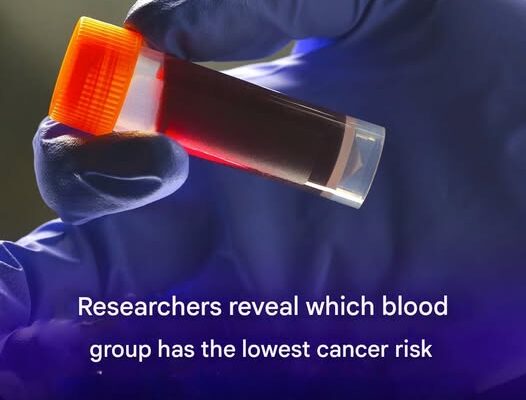 Summary of findings
Summary of findings
-
Several large analyses (systematic reviews + cohort studies) found that people with blood group O tend to have a lower risk of some cancers compared with non-O blood groups (A, B, AB). For example, one meta-analysis concluded:
“Blood group A is associated with increased risk of cancer, and blood group O is associated with decreased risk of cancer.” PMC+3PubMed+3WebMD+3
-
For specific cancers:
-
Gastric (stomach) cancer: Blood group A and AB showed higher risk compared to O. BioMed Central+1
-
Pancreatic cancer: Non-O blood types (i.e., A, B, AB) had higher risk compared to O in some studies. PMC+2news.cancerconnect.com+2
-
-
Some studies found that types B or AB may have lower risk for certain cancers when compared with A, but the overall picture remains inconsistent. E.g., one study in Chinese men found blood type B had a significantly lower risk for gastrointestinal cancers compared to A. PLOS
 Which blood group appears to have the lowest cancer risk according to evidence?
Which blood group appears to have the lowest cancer risk according to evidence?
Based on the available data: Blood group O is generally associated with the lowest risk of many (but not all) cancers, compared with A, B, or AB.
 Important caveats and limitations
Important caveats and limitations
-
The risk differences are relatively small. For example, an odds ratio for gastric cancer with group A vs O might be around ~1.19 (so ~19% higher risk) in one meta-analysis. BioMed Central+1
-
These are associations, not proofs of causation. Many confounding factors exist (diet, infections like H. pylori, smoking, genetics).
-
The strength of the association varies by cancer type, population, geography, and study design. Some studies found no significant association for certain cancers and blood groups. For example: for breast cancer, one large study found no clear association between ABO blood type and breast cancer risk or survival. PMC
-
Having blood group O does not mean you’re “safe” from cancer — it simply means your relative risk may be a bit lower (for some cancer types) compared to some non-O groups.
-
Screening, healthy lifestyle, genetics, exposures have much stronger impact on cancer risk than blood type alone.
 Take-away for you
Take-away for you
If you ask “Which blood group has the lowest cancer risk?” the best answer given current evidence is blood group O.
But importantly: don’t over-interpret this. It’s not a substitute for regular health screening, good lifestyle (no smoking, healthy diet, exercise), and genetic/family risk awareness.



